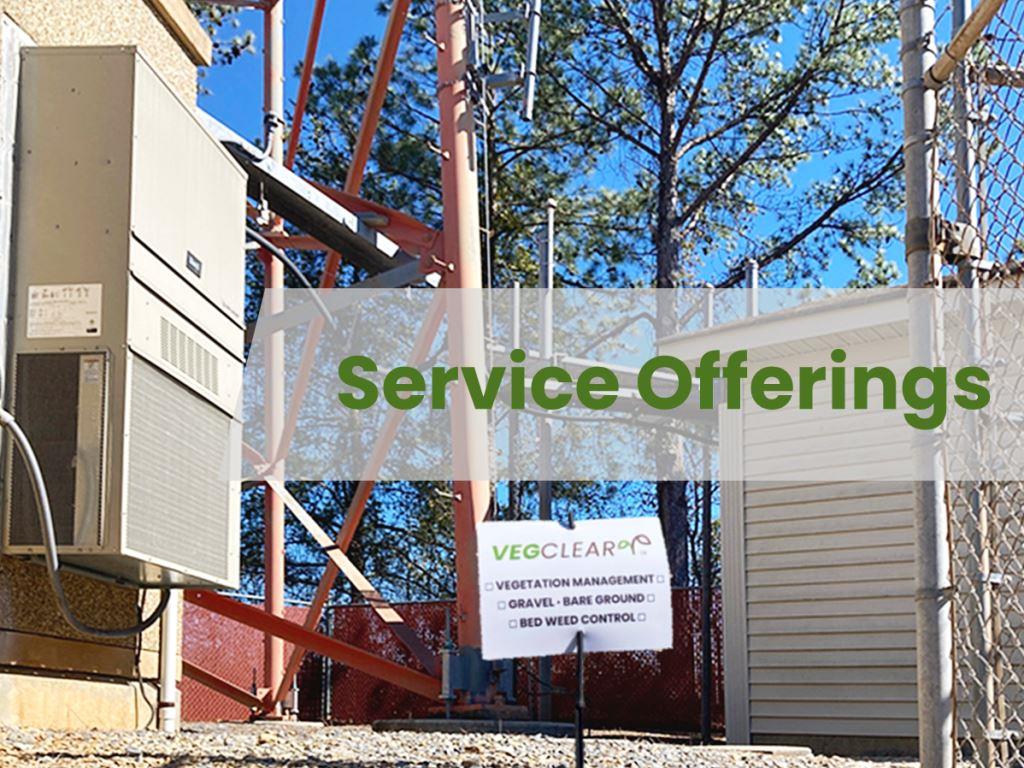

You Are Here: VegClear Home > Services
Licensed Vegetation Management and Commercial Weed Control in Georgia, South Carolina, and the Southeast US
Vegetation Control and Weed Management for Industrial & Commercial Properties
VegClear™ delivers site-specific vegetation management for properties that can’t be maintained with traditional landscaping. From rail yards and airports to storage lots and utilities, our licensed team keeps industrial and commercial sites clear, safe, and compliant year-round.

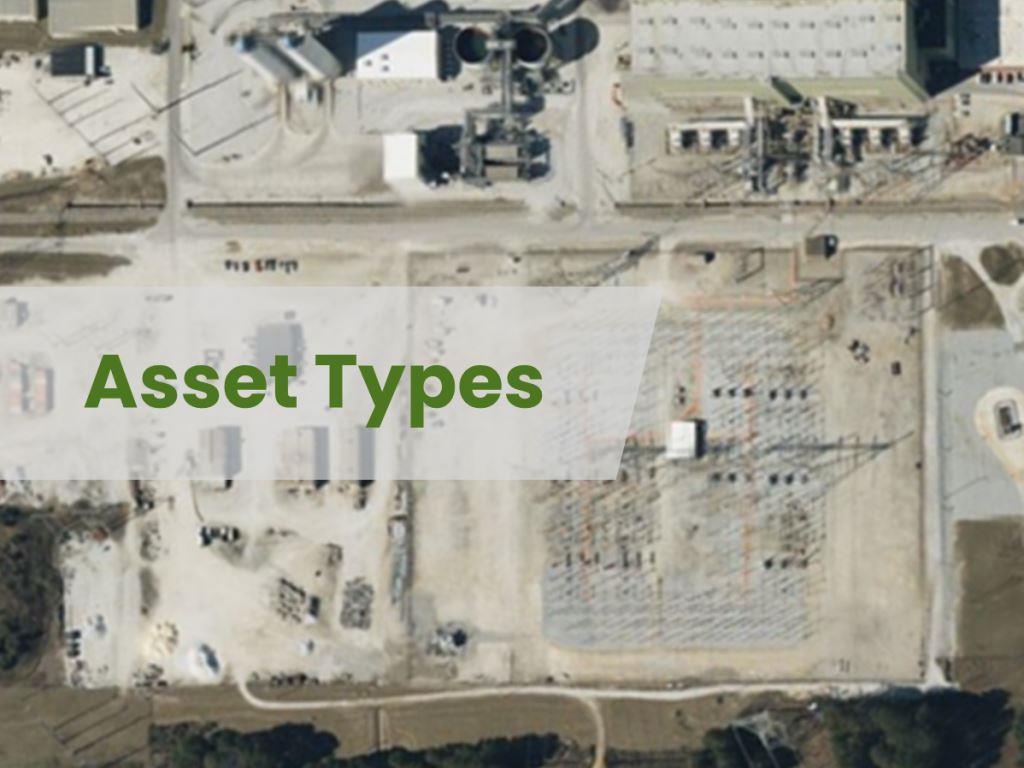
Property Types
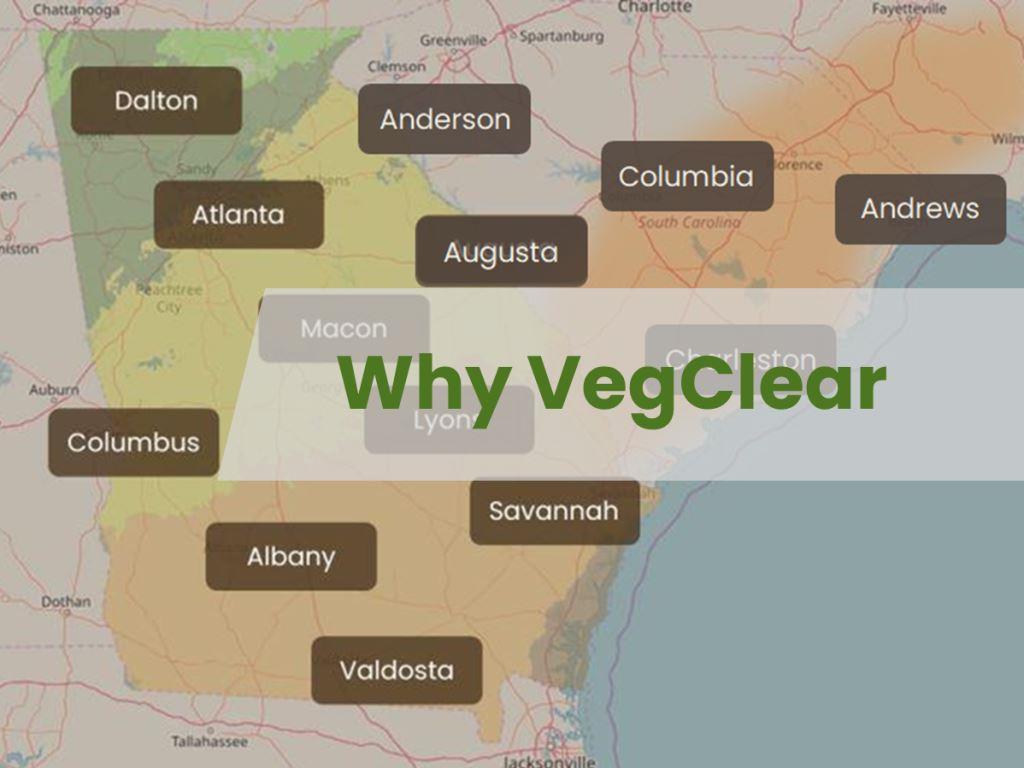
Why VegClear
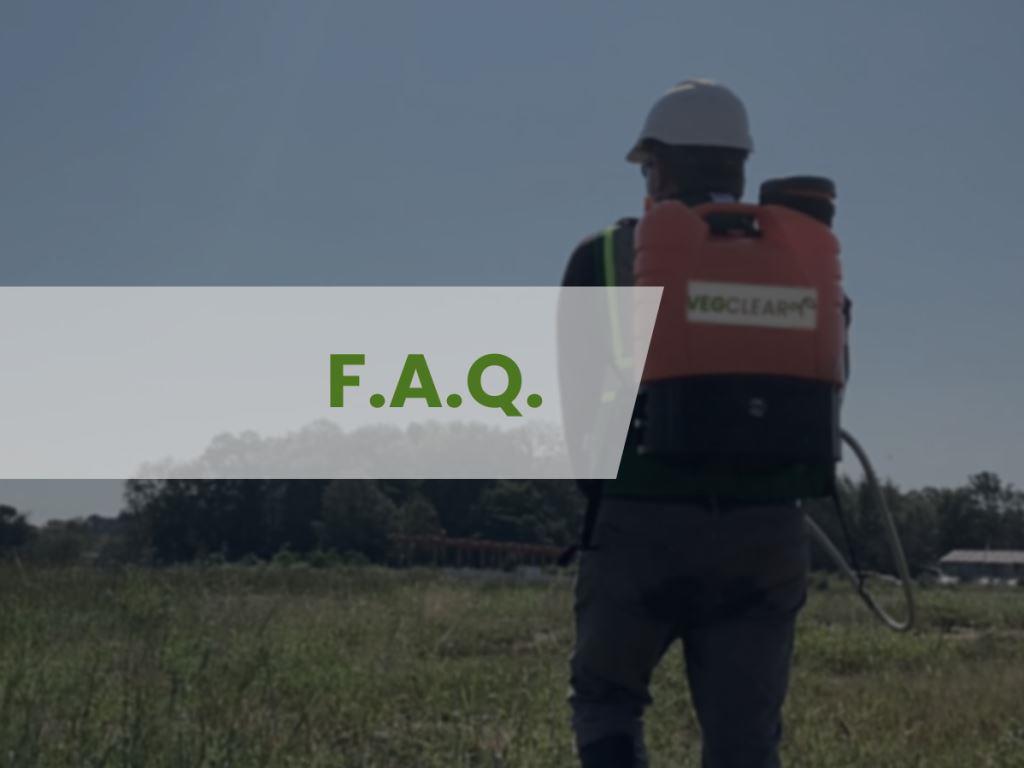
FAQ
Answers to Common Questions
We’ve gathered the most frequent questions from facility and property managers to make it easier to understand how VegClear works and what to expect.
How often should sites be treated?
Most properties need 4-6 applications annually, depending on conditions. Our fixed-cost programs simplify scheduling and keep sites clear year-round. Our treatment schedule is fully handled based on results and conditions throughout the year, no special requests are needed, although they are always welcomed.
What types of properties does VegClear specialize in?
We manage rail yards, outdoor storage, utility sites, cell towers, self-storage, solar farms, airports, landfills, and industrial facilities; most industrial areas where traditional landscapers are ineffective.
Does VegClear carry proper applicator licensing?
Yes. As a licensed pesticide contractor and applicator, we meet all state, federal, and local regulations including DOT and EPA standards. Documentation is included for audit and reporting needs. We are also fully accredited with vendor compliance programs like Avetta and NetVendor.
How are services priced and scaled?
Costs are based on acreage, access, site conditions, target vegetation, and application frequency. We offer scalable programs for single sites or multi-state portfolios, providing predictable budgets without surprise charges. We do not charge per individual treatment or extra frequency touch ups.
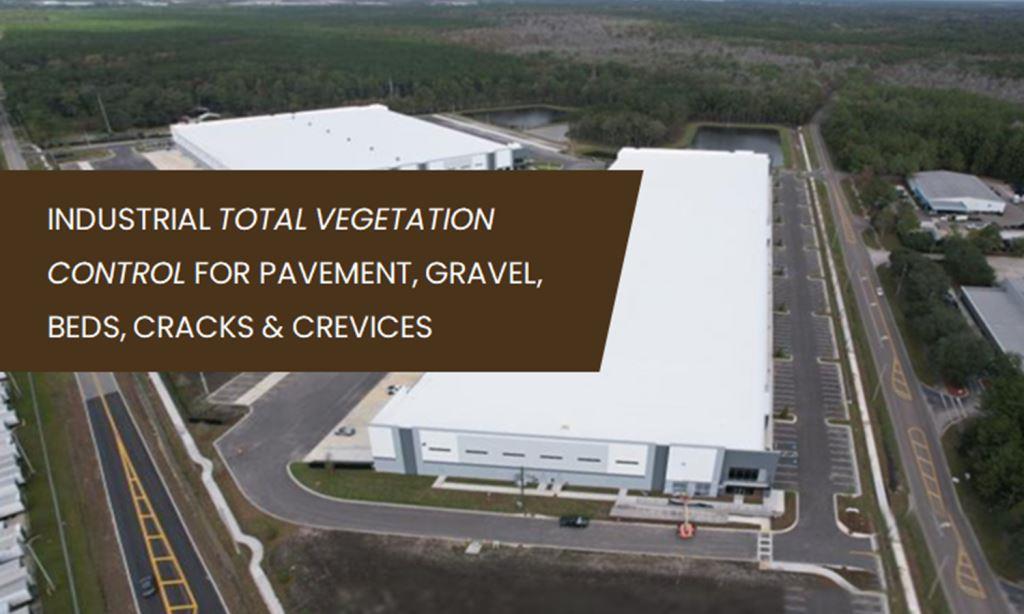
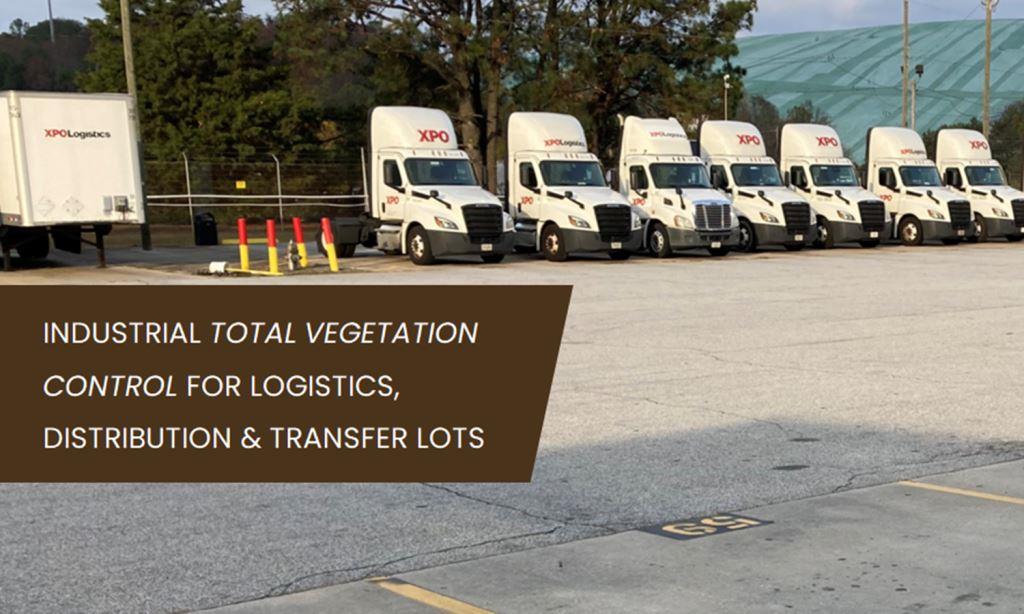
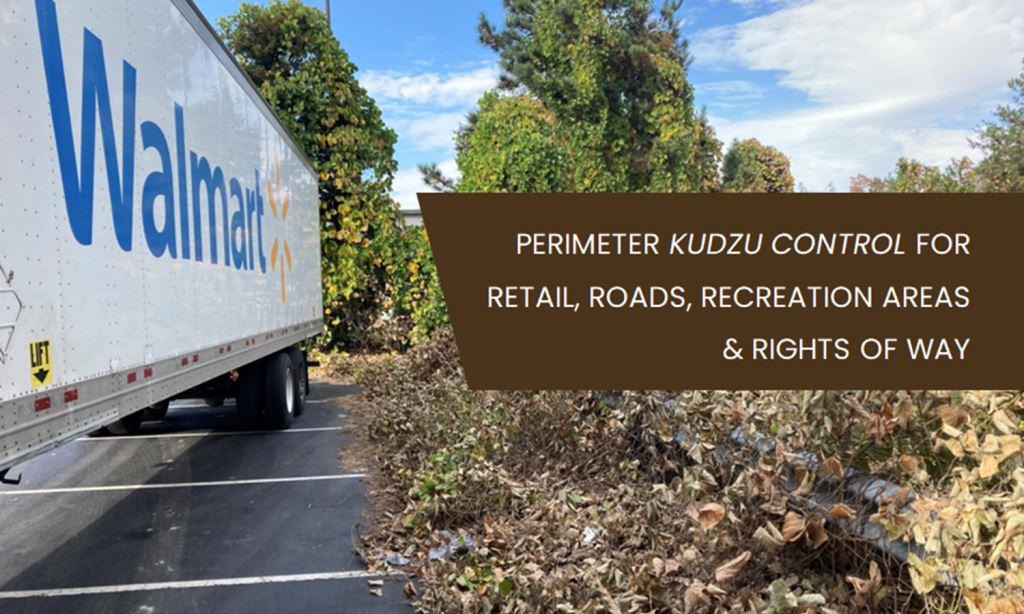
Benefits of Commercial Vegetation Control Services
VegClear’s Comprehensive Integrated Vegetation Management Programs promote desirable and stable plant communities using environmentally sound, cost-effective methods. In accordance with the EPA, this approach manages and controls unwanted, harmful, dangerous and intrusive vegetation while balancing care of the environment. Such methods are beneficial in that they help to keep the environment healthy while providing cost-effective vegetation control solutions promoting commerce and infrastructure stability.
What are the Benefits of Routine Vegetation Control & Maintenance?
Commercial property owners, managers, state and local governments, utilities and DOT supervisors all must control intrusive vegetation within their publicly accessible grounds & rights of way. Along roadsides & parking lots, uncontrolled vegetation can block views of traffic, other motorists, roadway signs, animals and obstructions. Water and snow can also build up on the roadway if vegetation impedes drainage. Excessive vegetation can also be a fire hazard. Vegetation on right of ways must be managed to maintain proper visibility for drivers and motorists approaching an intersection. In addition, vegetation can create fire hazards or come in contact with overhead electrical lines, block visual and remote monitoring of roads & railways leading to potential accidents from fallen or encroaching branches, thus hindering timely acceleration and braking. Federal safety regulations mandate the control of vegetation of many areas including rail, highways and certain industrial property that is, or is immediately adjacent to, publicly accessible areas. For utility right of ways, hazards associated with overgrown and dried vegetation pose a threat to grid reliability. Utilities also need access to equipment and lines, necessitating vegetation control, particularly on non-paved surfaces
How Does Maintenance of Overgrown Weeds and Plants Improve Quality of Life on Different Types of Commercial Property?
Neighborhoods, retail centers, golf courses, parks, picnic grounds, fair grounds, sports fields, historic sites and other recreational areas that include managed landscapes rely on various weed control methods to maintain their function and aesthetics. VegClear's ability to control a wide spectrum of weeds, grasses & trees, including perennials, with minimal intrusion to users, makes our approach a valuable asset in these settings to support the property's intended purpose. Whether used in conjunction with preemergence or without, herbicides are able to control or allow residual activity, either preventing or permitting new vegetation between routine treatments, or altogether eliminating germination. High labor costs of traditional mechanical alternatives make VegClear an affordable option for renovating or eliminating existing vegetation without the use of small gas powered engines on site
How is Selective Weed Control Handled with Herbicides?
Selective weed control is an important aspect of maintaining commercial property aesthetics, clear access to rights-of-way for utility companies, and safe industrial property. At VegClear, we specialize in selecting the correct application approach and many times that involves using low-volume backpack sprayers to apply herbicides in a targeted manner, effectively controlling invasive and non-native woody plant species without harming desirable vegetation. Our applicator crews are trained to identify and target the tall, fast-growing species on rights-of-way, easements, wood lines, and natural areas surrounding commercial sites. In some cases, selective herbicides are used in conjunction with blanket sprays to strategically eliminate target plants on a mass scale while preserving beneficial low-growing grasses.
A major factor in restoring utility transmission during emergency situations is clear access to rights-of-way. We support utility co-ops and distribution grid operators by keeping weeds and brush controlled below a height that would hamper visibility or hinder access along and to the right-of-way. Maintenance involves selectively applying herbicides to all or some vegetation including non-desirable species, making way for the growth of desirable grasses and other herbaceous plants. We use herbicides approved by the EPA that are applied by licensed herbicide applicators. Our adherence to the industry standard IVM (integrated vegetation management) approach helps to promote and establish a stable, diverse, low-growing plant community on effected areas, which reduces the potential for soil erosion and is also extremely beneficial for wildlife.
Is Kudzu Really That Bad? Does Killing Kudzu Benefit Commercial Property Values?
Kudzu is an invasive species that can grow rapidly and outcompete native vegetation, including trees. It can create its own trellis and reach heights of 100 feet and a spread of 50 to 60 feet from a single point of germination. Without active vegetation management, kudzu can quickly take over an acre of land, making it difficult for other plants to survive.
Originally from Japan, kudzu was introduced to the U.S. in 1876 as an ornamental. In the 1920s and 1930s, it was widely planted as either a forage crop or groundcover. However, once its invasive properties became well known, the USDA banned intentionally planting kudzu as a cover crop in 1953. Today, kudzu can be found in states from Georgia, Florida to the Great Lakes as well as from the coastal Atlantic states to Nebraska, Kansas, Oklahoma and Texas and elsewhere. In addition to smothering other plants, kudzu is also the host to the kudzu bug, which is becoming a devastating pest in southern U.S. crop fields. Controlling kudzu can help limit the damage caused by these bugs for soybean growers and the need for associated insecticide applications.
Industrial vegetation management service by VegClear can help commercial, government, and industrial property owners effectively manage and eradicate kudzu. By eliminating kudzu and other invasive species, these services can help restore the natural balance of the ecosystem and promote the growth of native vegetation. With the right approach, you can effectively control kudzu on your industrial property, ensuring it doesn't damage your site or cause problems for your surrounding commercial neighbors.